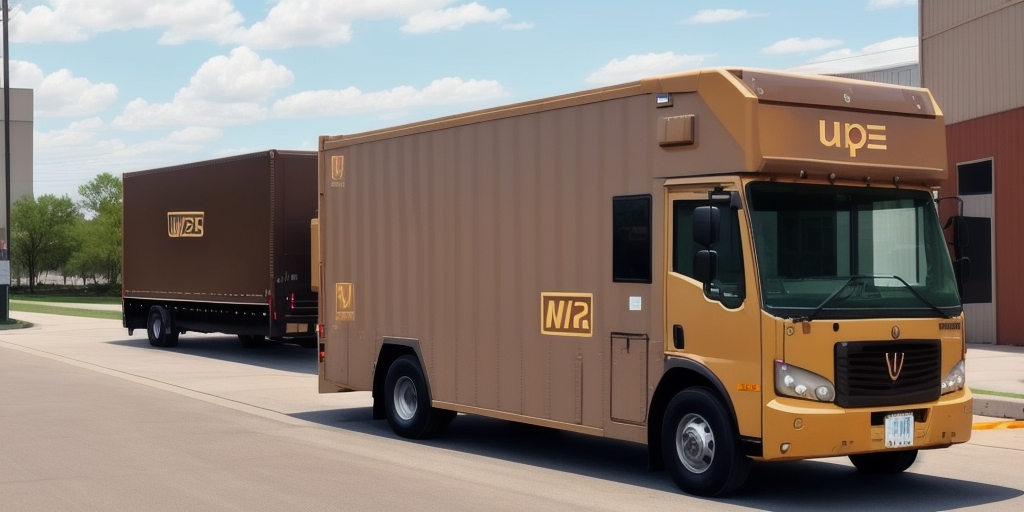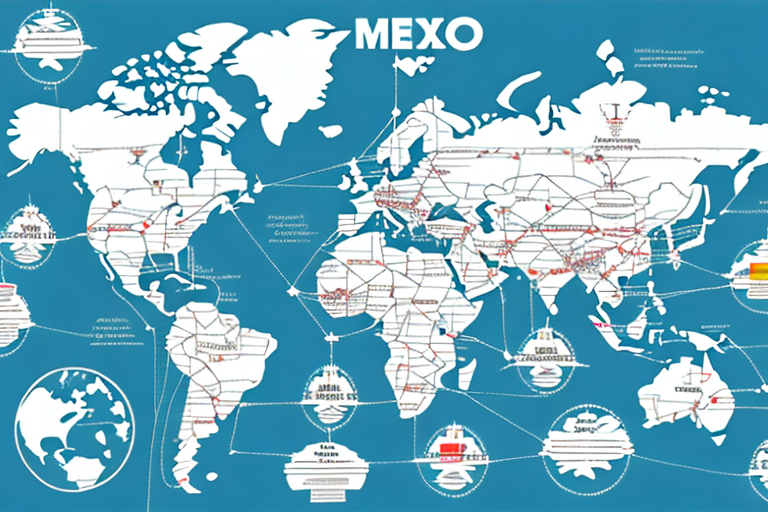Comparing UPS and USPS for International Shipping
When it comes to international shipping, choosing the right carrier is crucial. Two of the most popular options are UPS and USPS, but which one is better suited to your needs? In this article, we'll dive deep into the offerings of both carriers to help you make an informed decision.
Understanding the Basics of International Shipping
Before comparing UPS and USPS, it's essential to understand the fundamentals of international shipping. Key factors include:
- Customs Regulations: Each country has specific import and export rules.
- Duties and Taxes: These can vary based on the shipment's value and destination.
- Packaging Requirements: Proper packaging ensures safe transit and compliance with destination standards.
Choosing a carrier that expertly navigates these complexities can significantly streamline your shipping process.
Cost Analysis: UPS vs USPS
Pricing Structures
Both UPS and USPS offer competitive pricing, but their structures differ:
- USPS: Generally more affordable for smaller packages and offers flat-rate options.
- UPS: Often provides better rates for larger and heavier shipments, especially with volume discounts.
According to the USPS Rate Calculator, a 5 lb package sent internationally via USPS starts at approximately $45, whereas UPS rates for the same package might start around $70 but offer faster delivery options.
Additional Costs
Consider potential extra costs such as:
- Insurance: Both carriers offer insurance, but UPS’s coverage is generally more extensive.
- Customs Fees: UPS provides a dedicated customs brokerage service, potentially reducing unexpected costs.
Delivery Speed and Reliability
Transit Times
Delivery speed is a critical factor:
- UPS: Offers expedited services like UPS Worldwide Express, delivering within 1-3 business days to major destinations.
- USPS: Services like Priority Mail International typically deliver within 6-10 business days.
Recent data from the Global Shipping Transit Report 2023 indicates that UPS has a slightly higher on-time delivery rate (95%) compared to USPS (89%) for international shipments.
Reliability Factors
Reliability encompasses not just speed but also the consistency of deliveries:
- Tracking Accuracy: UPS provides more detailed tracking updates, allowing for better shipment visibility.
- Handling of Packages: Both carriers have robust handling processes, but UPS’s advanced logistics network often results in fewer delivery issues.
Customer Service Comparison
Support Channels
Effective customer service can resolve issues swiftly:
- UPS: Offers phone, email, and live chat support, along with a comprehensive online help center.
- USPS: Provides phone and email support, as well as an extensive online resource library.
Customer Satisfaction
According to the Customer Service Index 2023, UPS scores higher in personalized customer support compared to USPS, which receives mixed reviews regarding response times and issue resolution.
Packaging and Insurance Requirements
UPS Packaging Guidelines
UPS requires shipments to:
- Use sturdy, durable boxes.
- Include proper cushioning materials.
- Clearly label packages with accurate addresses and shipping labels.
USPS Packaging Guidelines
USPS offers:
- Flat-rate boxes for cost-effective shipping.
- Guidelines on permissible items and packaging materials.
- Recommendations for securing packages to prevent damage during transit.
Insurance Coverage
Both carriers offer insurance, but with key differences:
- UPS: Provides higher coverage limits and more comprehensive options, suitable for valuable shipments.
- USPS: Offers basic insurance at lower costs, adequate for less expensive items.
It's crucial to assess the value of your shipment and choose the appropriate insurance level to safeguard against potential losses.
Customs Clearance Process
UPS Customs Brokerage
UPS has a dedicated customs brokerage team that:
- Assists with documentation.
- Ensures compliance with international regulations.
- Expedites the clearance process, reducing delays.
USPS Customs Processing
USPS relies on third-party brokers for customs clearance, which can sometimes:
- Result in longer processing times.
- Occur unexpected fees or hold-ups if documentation is incomplete.
To minimize delays, ensure all necessary paperwork is accurately completed and included with your shipment.
Tracking and Shipment Visibility
UPS Tracking Features
UPS offers advanced tracking capabilities, including:
- Real-time updates at each transit point.
- Detailed status notifications via email or SMS.
- Integration with third-party tracking software for businesses.
USPS Tracking Features
USPS provides standard tracking updates, such as:
- Status at major transit points.
- Limited real-time information compared to UPS.
- Mobile app integration for on-the-go tracking.
For shipments where tracking visibility is paramount, UPS generally offers a more robust solution.
Making the Right Choice for Your Shipping Needs
Ultimately, the decision between UPS and USPS hinges on your specific requirements:
- Choose UPS if:
- You need faster delivery times.
- You're shipping larger or more valuable items.
- Comprehensive tracking and customer support are priorities.
- Choose USPS if:
- You're shipping smaller, lighter packages.
- Cost-effectiveness is a primary concern.
- Delivery speed is less critical.
By carefully assessing your shipping needs and considering the factors outlined above, you can select the carrier that best aligns with your international shipping goals.








